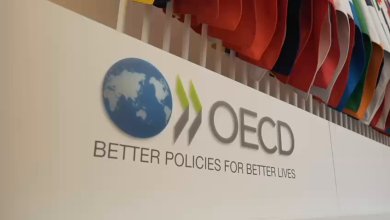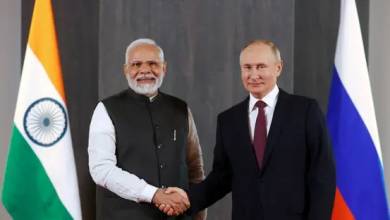Oil Falls Below $65: Relief for Consumers, Setback for Producers
The global oil market has entered a new phase, with Brent crude prices falling below $65 per barrel, a level not seen since the pandemic-induced crash of 2020. While this offers welcome relief to consumers worldwide, energy analysts warn that it poses challenges for oil producers, particularly those with higher operating costs.
Brent crude, the global oil benchmark, is now valued significantly lower than the highs of over $120 per barrel recorded in 2022, following Russia’s invasion of Ukraine. This decline can be attributed to several key factors: the aggressive tariff policies of former US President Donald Trump, his push for increased domestic drilling, and a recent decision by the OPEC+ alliance to raise production quotas. **
Impact on global inflation and consumer spending
Falling oil prices are helping to ease inflationary pressures globally. In countries that heavily rely on crude imports, particularly across Europe, this drop has contributed to cooling rising prices. In the United States, the consumer price index decreased by 11.8% year-on-year in April. Pushpin Singh, an economist at the UK-based Centre for Economics and Business Research (Cebr), explained that lower oil costs mean consumers have more disposable income to spend on leisure activities, travel, and non-essential items.
Additionally, sectors such as transportation and manufacturing are experiencing a decline in input costs, which could eventually lead to lower prices on consumer goods. However, Singh cautioned that this positive trend may not be sustainable.
While energy prices are decreasing, other costs, such as those of metals and other raw materials, could rise due to ongoing trade tensions, making inflation more difficult to predict in the long term. Moreover, cheaper oil could undermine the competitiveness of renewable energy sources, potentially slowing down investments in green infrastructure.
Strain on oil-producing nations
Oil-exporting countries are feeling the pressure. According to Ole Hansen, head of commodity strategy at Saxo Bank, nations with higher production costs may need to scale back operations if prices continue to linger near or below $60 per barrel.
Shale oil producers in the US, particularly in the Permian Basin, which spans Texas and New Mexico, are already reevaluating their investment strategies, according to Jorge Leon, an analyst at Rystad Energy. The OPEC+ alliance, led by Saudi Arabia and Russia, has responded to the price slump in varied ways. While wealthier Gulf states such as Saudi Arabia, the UAE, and Kuwait can rely on strong financial reserves to sustain their economies and invest in diversification, countries like Nigeria, Venezuela, and Iran face significant challenges.
These nations have fewer options for borrowing and are more reliant on oil revenue for fiscal stability.
Strategic changes within OPEC
In a surprising move, OPEC recently announced a significant increase in oil output, adding 411,000 barrels per day starting in July. Analysts suggest this strategy may be aimed at addressing non-compliance among member nations and responding to geopolitical pressure, particularly from President Trump, who has called for lower oil prices.
Though this may help restore some market share to leading producers like Saudi Arabia, it could further strain those nations struggling to balance their budgets. Non-OPEC members are also affected; for instance, Guyana, a rising oil producer with a booming GDP fueled by recent discoveries, could experience slower growth if prices remain depressed.
As the global energy landscape adjusts, consumers may enjoy temporary benefits at the pump and in retail prices, but for oil producers, especially those with limited financial resources, the road ahead could be challenging.



